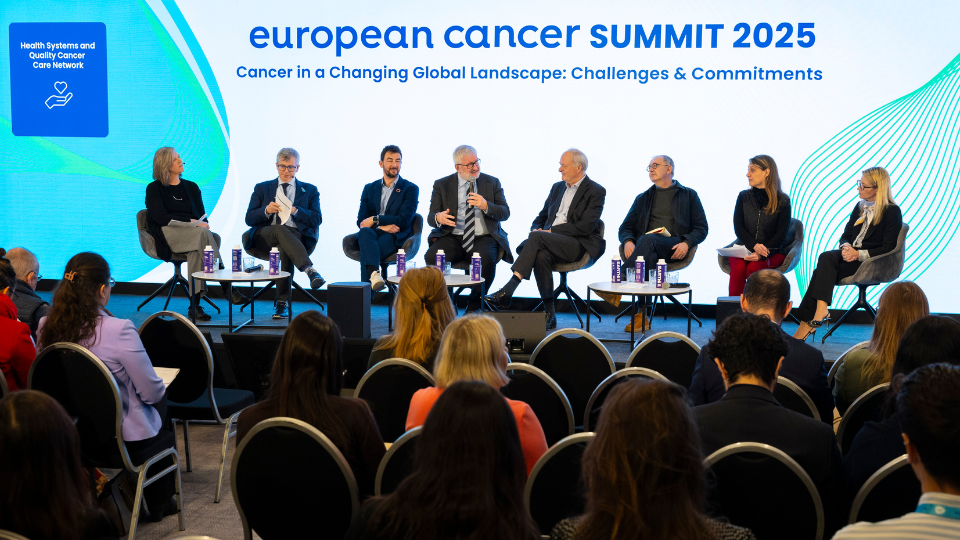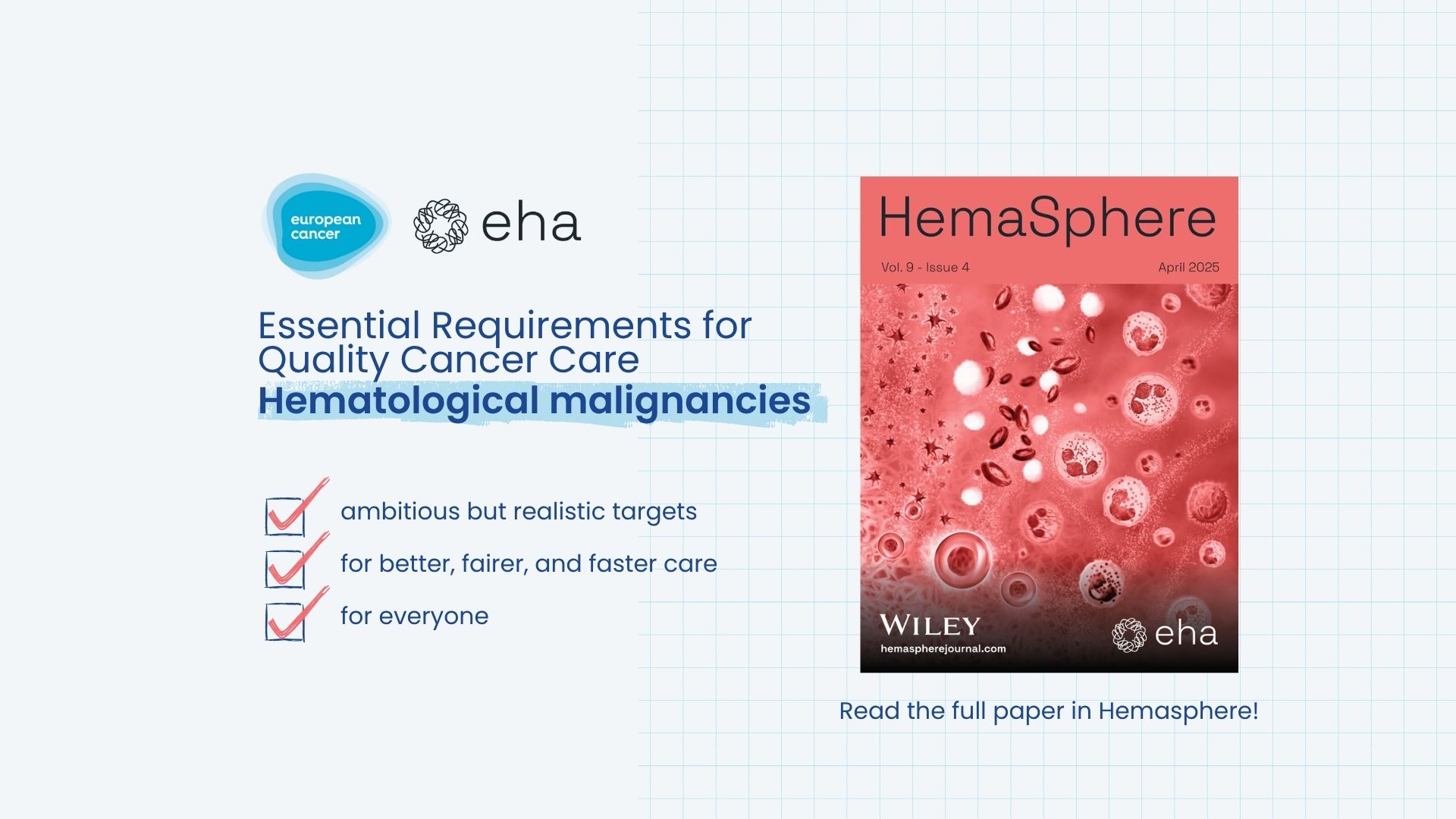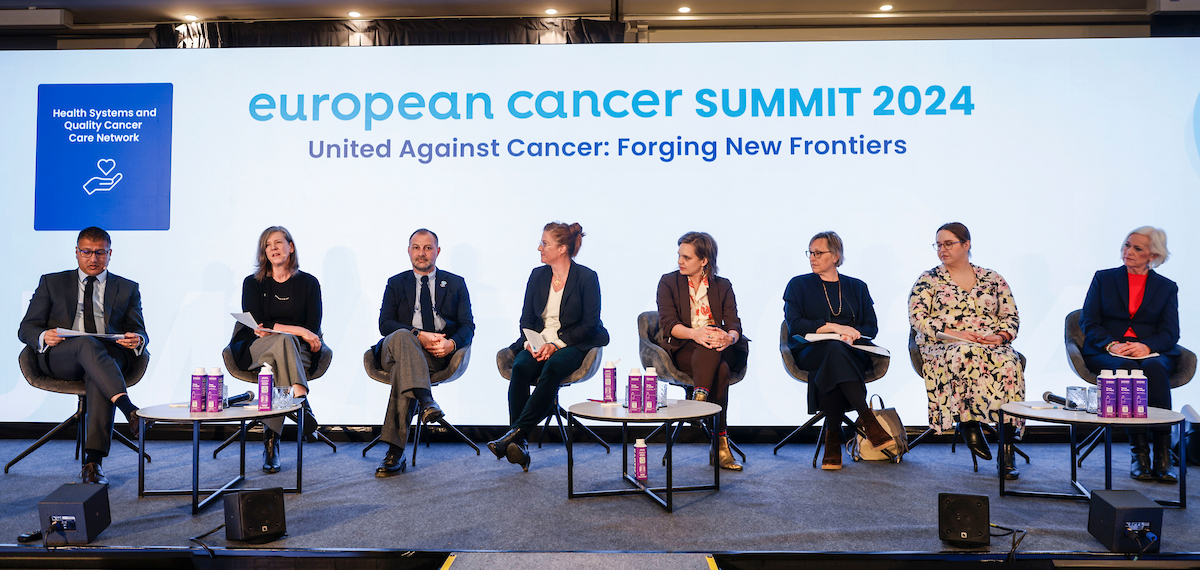Health Systems and Quality Cancer Care Network
Contact the NetworkQuality Cancer Care is at the heart of the European Cancer Organisation’s guiding mission: 'To reduce the burden of cancer, improve outcomes and the quality of care for cancer patients, through multidisciplinarity and multiprofessionalism.'
In recent decades, advancements in cancer care have significantly improved diagnostic speed and accuracy, the effectiveness of surgery, radiation therapy, and medical treatments, and the utilisation of information technology. Additionally, the development of multidisciplinary, specialist-led care approaches has been crucial. These innovations are essential for continuing to improve cancer patient care across Europe, especially in the face of financial constraints on healthcare systems.
The Health Systems and Quality of Life Network is presently focused on:
- Examining and promoting the role of national cancer control plans in driving tangible improvement in cancer care and control
- Achieving the vision of the multidisciplinary cancer care encapsulated in the Essential Requirements for Quality Cancer Care series
- Advocating for the upholding of patient rights, as represented by the European Code of Cancer Practice
European Cancer Summit: Watch the 2025 Health Systems and Quality Cancer Care Session - National Cancer Control Plans in Focus: Lessons, Challenges, and Future Directions
Essential Requirements for Quality Cancer Care: Hematological Malignancies - Launched in June 2025:
Every year, 300,000 Europeans receive a blood cancer diagnosis such as leukaemia, lymphoma, and myeloma. And the numbers are on the rise.
This is not acceptable. While Europe has made real strides in identifying and treating hematological malignancies, we must push ‘earlier diagnosis as well as better access to tailored information, emotional support, and patient advocacy services.’
That’s why the European Cancer Organisation, together with leading experts and under the guidance of Professor John Gribben and Professor Leticia Quintanilla-Fend, have taken the important initial step in clearly identifying what every patient deserves. Learn more here.
The full list of Essential Requirements for Quality Cancer Care published so far is provided below.
- The Requirements of a Specialist Breast Centre (part of the Essential Requirements for Quality Cancer Care series)
European Cancer Summit 2024 Session: Quality backed by evidence and systems: a review from our Health Systems & Quality Cancer Care Network
Watch the session recordings on Health Systems Optimisation and Quality Cancer Care and read the full European Cancer Summit 2024 Report to discover the rich and diverse discussions of these sessions.
Promoting Key Rights of Cancer Patients and Survivors
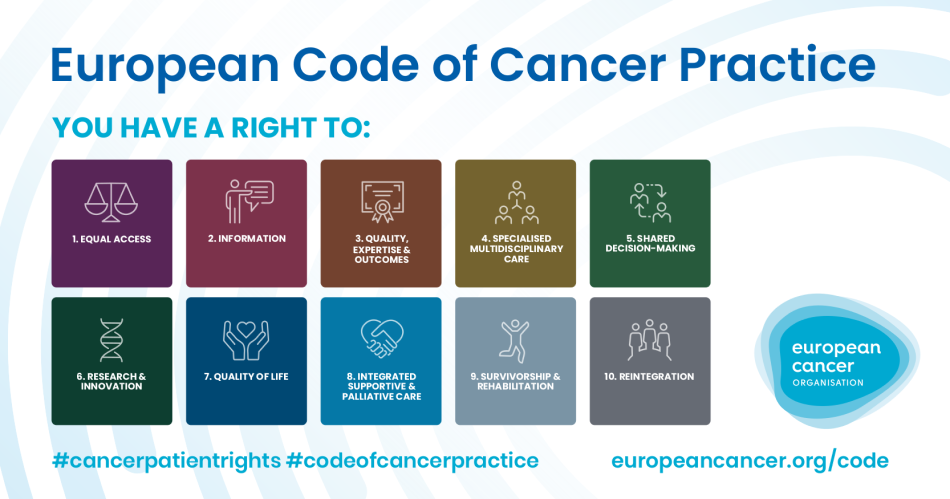 |
On 23 September 2020, EU Commissioner for Health and Food Safety Stella Kyriakides officially launched the European Code of Cancer Practice. Recording from the virtual launch event and video statements can be found here.
The European Code of Cancer Practice is a citizen and patient-centred manifesto of the core requirements for good clinical cancer practice, in order to improve outcomes for all of Europe's cancer patients. It sets out a series of 10 key overarching rights, and in particular signposts what patients should expect from their health system, in order for them to achieve the best possible outcomes.
It is an empowerment tool to ensure the best available care is delivered for European citizens and patients, translated into many languages.
Many organisations have already endorsed the European Code of Cancer Practice.
More information about the European Code of Cancer Practice is available here.
The European Code of Cancer Practice is also underpinned by a supporting paper on the Medical Literature and Evidence upon which the recommendations are based.
In June 2021, the article on the European Code of Cancer Practice was published in the Journal of Cancer Policy. You can read the article here.
The European Quality Cancer Care Catalogue
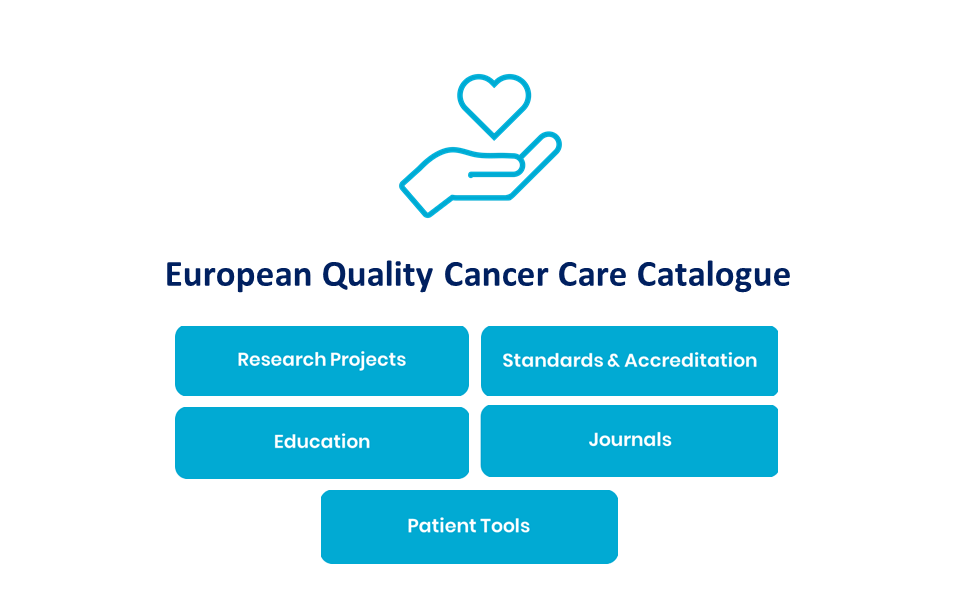 |
The Quality of Cancer Care matters. For this reason, in 2020, European and international healthcare professional, patient and other organisations devoted themselves to providing resources to support the achievement of Quality Cancer Care.
The European Quality Cancer Care Catalogue provides a central repository to signpost individuals to the tools they will find helpful. In this sense, it aims to be a continually evolving home for societies and other entities to profile and disseminate their work to broad audiences likely to have interest in their initiatives.
You can find the full catalogue here.
You can check older Network Reports
- Position Paper on the EU Propositions for Comprehensive Cancer Infrastructures
- Action Report on Lung Cancer
- Essential Requirements of Quality Cancer Care
Background
To support health systems in navigating the decision-making challenges posed by new treatment options, members of the European Cancer Organisation have initiated various actions such as the EORTC Treatment Optimisation manifesto and projects aimed at fostering more value-based approaches to innovation uptake.
This network collaborates with over 45 European Cancer Organisation Member Societies, the Patient Advisory Committee, and Community 365, alongside invited experts to centralise best practices in its flagship repository: The Quality Cancer Care Catalogue.
Key missions of the network include:
- Treatment optimisation, focusing on improving cancer treatment for the benefit of patients;
- Health systems optimisation, aiming to enhance cancer care delivery for the benefit of healthcare systems.
To learn more, support our work or join the network, please contact us


